“Learning to Lament” by Rachael Newham: 7 Ways to Pray blog series
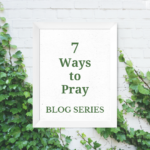
What happens when God is suddenly silent? Rachael shares movingly of her experiences as a teenager and beyond. She eventually found hope in the Psalms and learning how to lament. That someone before her could voice her feelings gave her a language with which to communicate with God. She learned to lament. I believe you’ll find her post so encouraging:
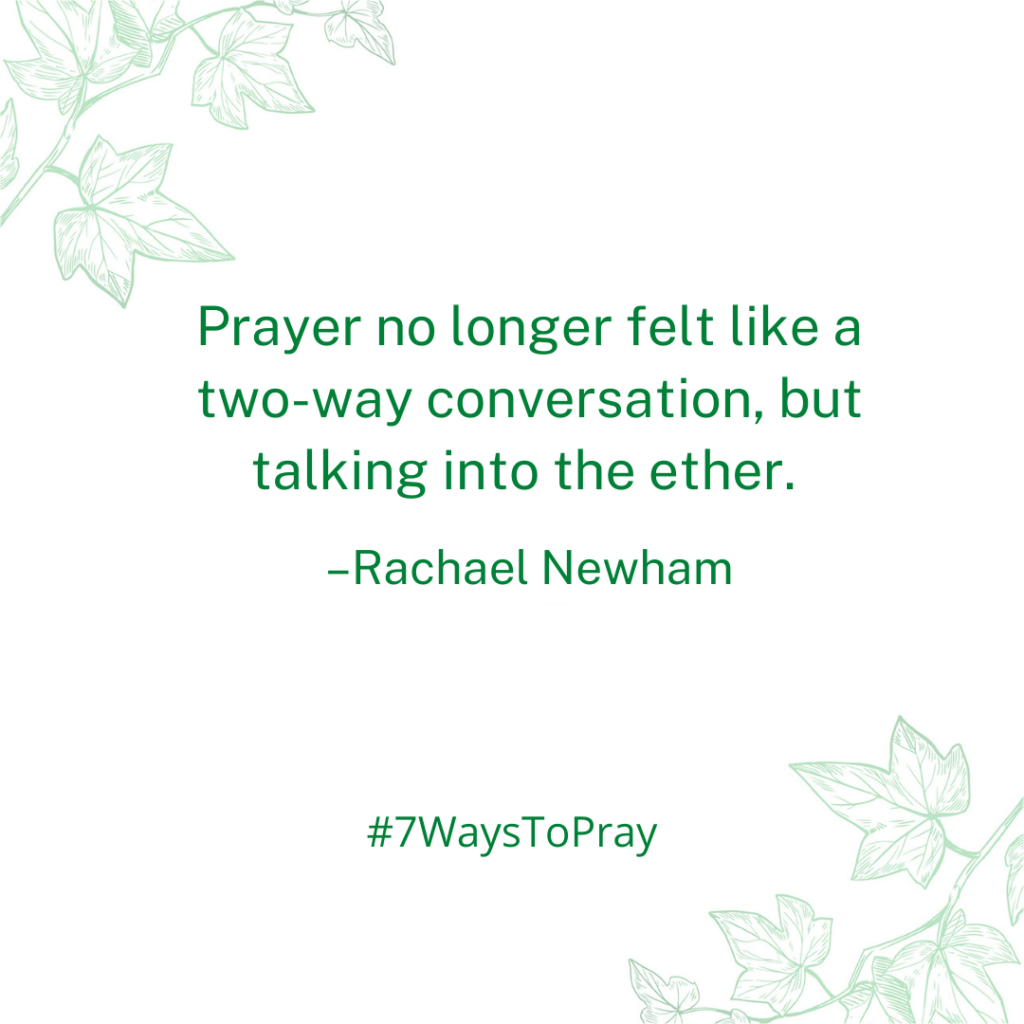
It was a running joke when I was small girl that if I were saying grace, we’d better get the microwave on standby as the food would be cold by the time I’d finished praying. As a young child, prayer felt as natural to me as breathing, a near-constant conversation between my God and I.
As I grew older however, the easy connection became strained, even more so when I first developed mental illness at fourteen. Prayer no longer felt like a two-way conversation, but talking into the ether. I was bombarded by questions about who I was and what I believed about the God I felt had abandoned me to myself. I can’t remember ever doubting God’s existence, but the distance grew into what felt like an unreachable chasm. I got stuck on the idea that I couldn’t pray for myself, that God couldn’t possibly care for a messed up teenager living a comfortable life when there was so much struggle and poverty going on in the world. My vision of God shrunk with my ability to pray and I began to believe that the miraculous encounters I heard about from friends attending summer festivals were totally outside of my reach.
I’d been writing in a diary since the earliest days of my illness; and when someone wrote Psalm 40 in a card to me during a particularly dark period, I began to address my writings to God. Suddenly I was no longer venting my pain into the void, but into the presence of the Father I’d given my life to aged five.
The words of Psalm 40 became my own prayer;
“I waited patiently for the LORD; he turned to me and heard my cry. He lifted me out of the slimy put, out of the mud and mire; he set my feet on a rock and gave me a firm place to stand. He put a new song in my mouth, a hymn of praise to our God.”
There was something astounding to me that someone had expressed my despair before God all those years ago and yet was able to declare that God had met them in the midst of the pit. It was not the flash of light miracle I so craved, but something began to change for me. As my writing became my prayer, I started to rediscover the closeness with God that I had been missing.
I would later learn to call the prayers I was writing lament – that as I learned to express my despair before the God of hope, He was opening up the possibility that perhaps the gospel truth of our belovedness was not lost to me, that I was not lost to Him.
I began to almost crave the more reflective times in church life of Advent and Lent, the ancient liturgy and story of the God moving into the neighbourhood and experiencing the breadth of our humanity, the darkness of Good Friday and the silence of Holy Saturday met me where I was and I didn’t feel as if I had to fake jubilation in the same way that I felt was expected at Christmas and Easter.
Over the past few years however, I have begun to appreciate the call of Romans to “weep with those who weep and rejoice with those who rejoice”, the recognition from Ecclesiastes that “There is a time for everything, and a season for every activity under the heavens.“ The seasons of life; of happiness and sorrow are experienced as the family of God and our times of corporate prayer and worship should have space for the joy and the pain to be expressed together in community.
Our God has given us the gift of prayer and community through every season of life so that through it all we may listen for the heartbeat of God whose love remains steadfast.

Rachael Newham is the Mental Health Friendly Church Project Manager at Kintsugi Hope and the author of two books. Her most recent And Yet was chosen as a part of The Big Church Read. Rachael founded the Christian mental health charity ThinkTwice and led it for a decade. She writes and speaks widely on issues of theology and mental health. You can keep in touch with her on Facebook, Twitter or Instagram.
Order 7 Ways to Pray here for more ways to encounter God, including resources for small groups.

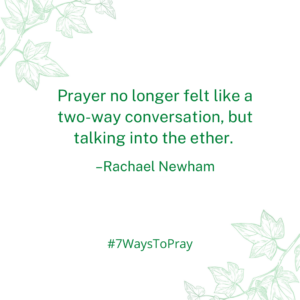




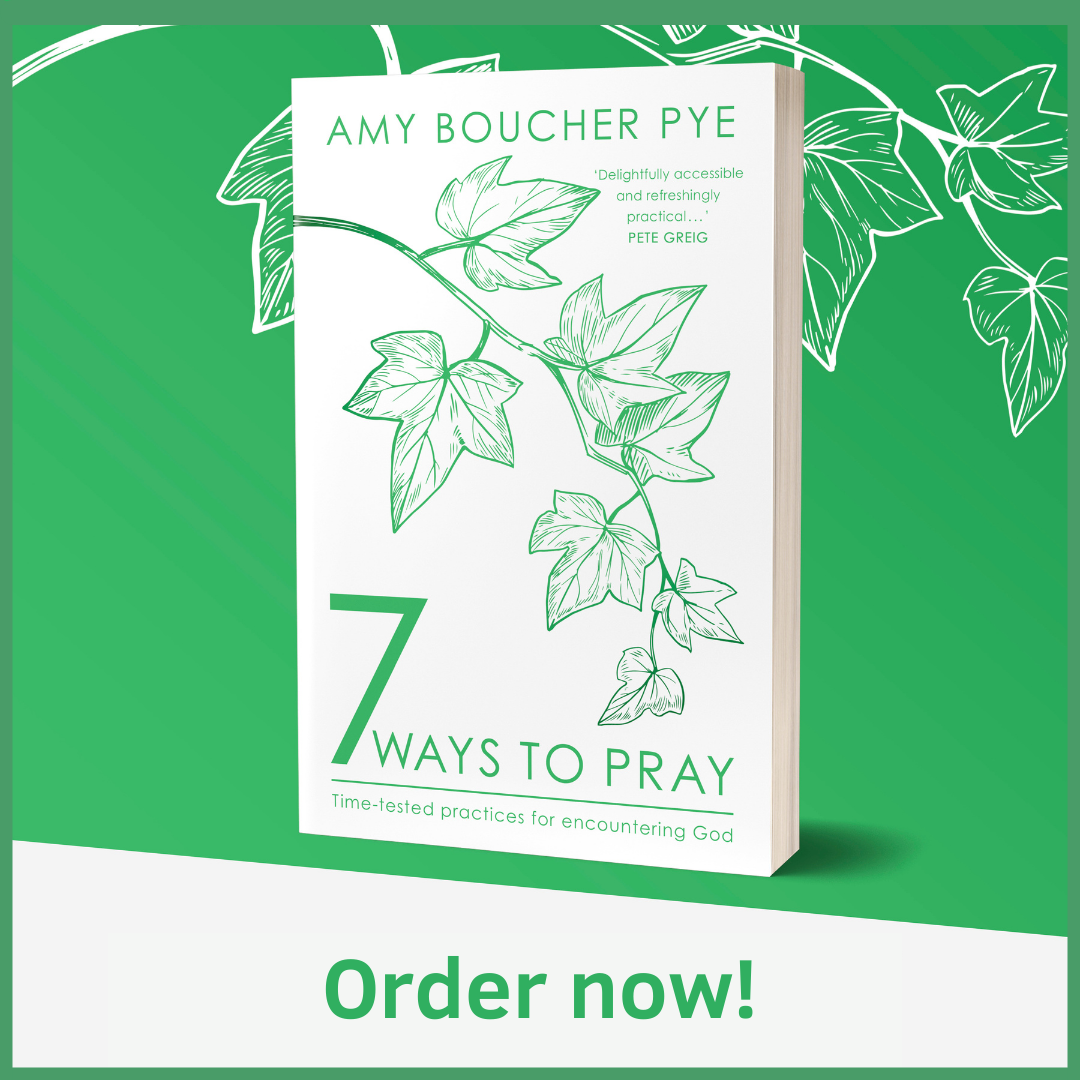
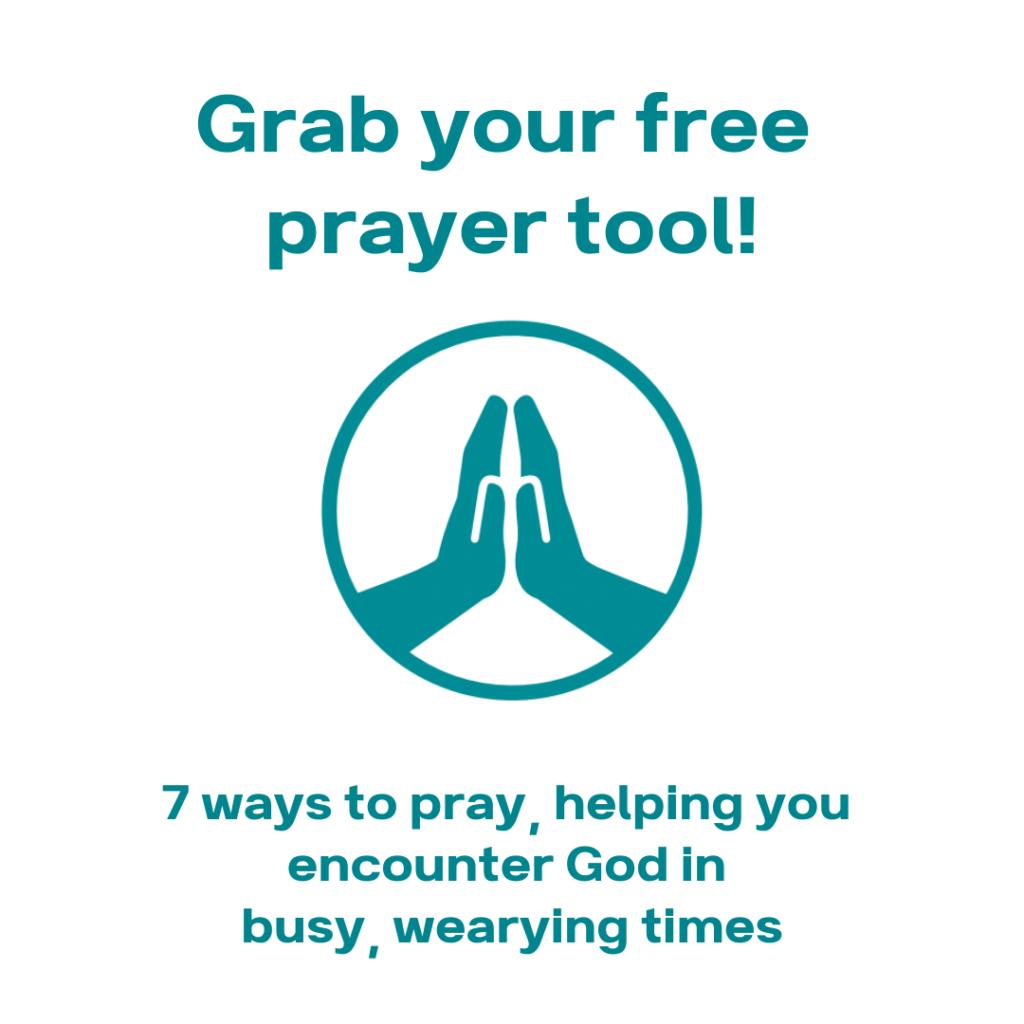
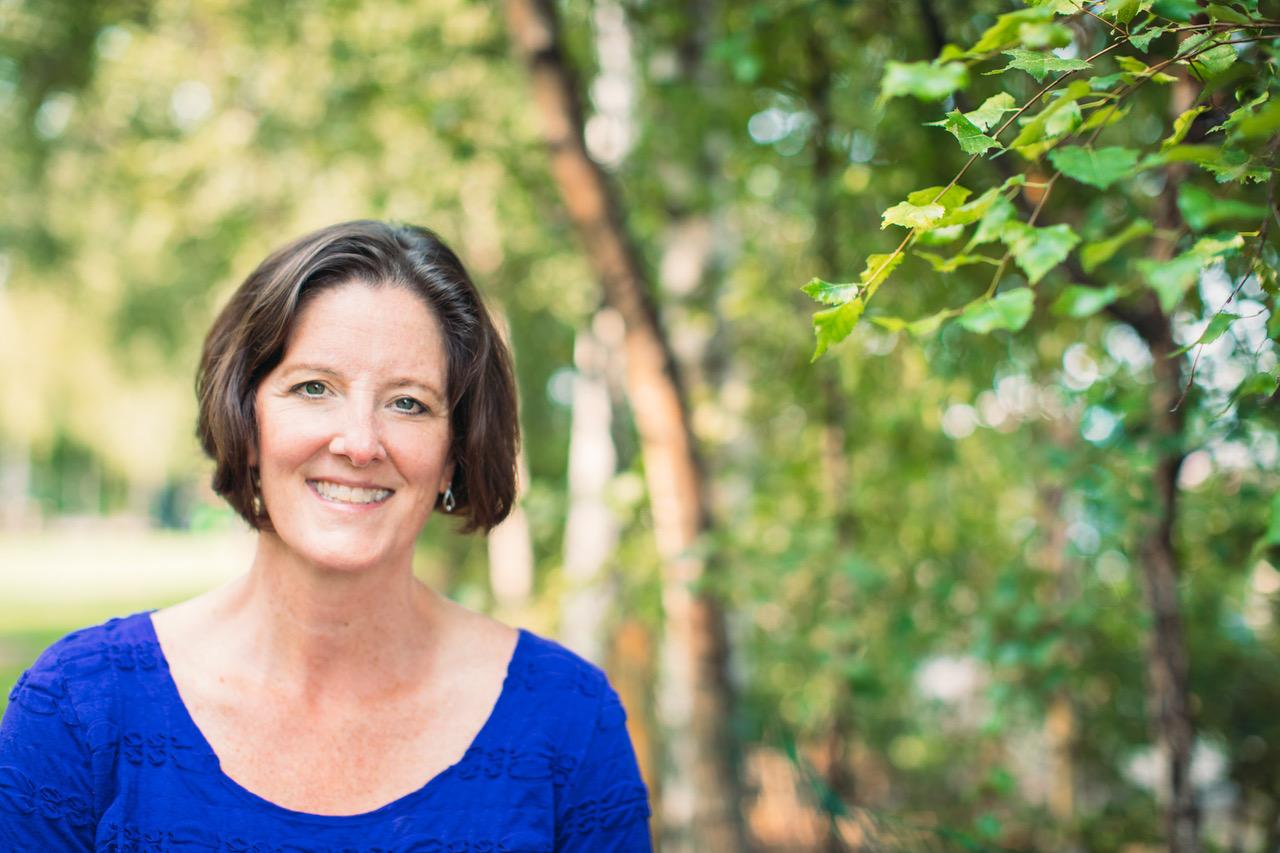 Hello!
Hello! 